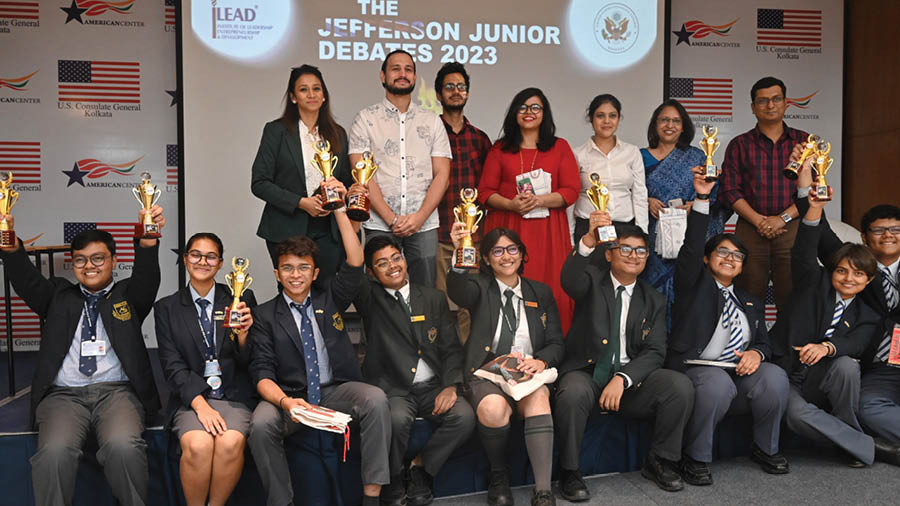Sharp arguments and novel insights were the mantra at the second edition of The Jefferson Junior Debates organised by the US consulate general, Kolkata, and iLEAD at the American Center on November 17.
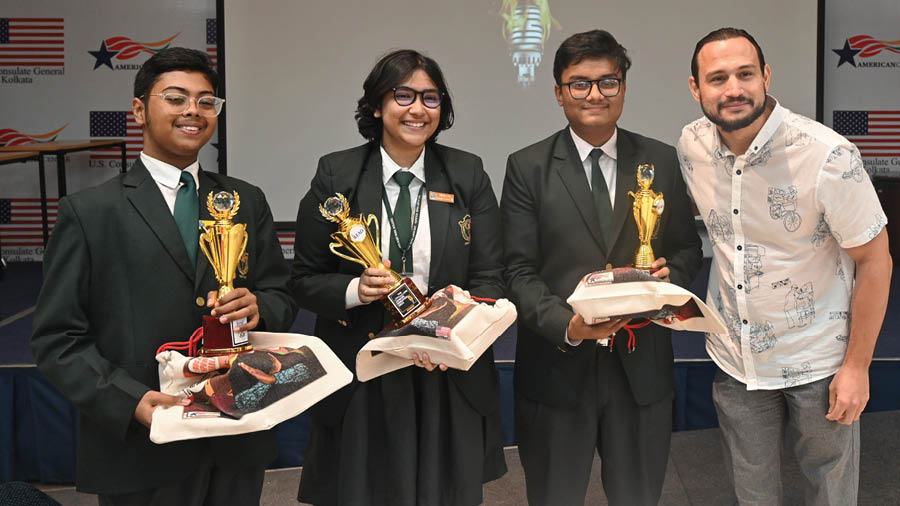
(L-R) Priyangshu Chaterjee, Mahasri Bhattacharjee and Mitadru Dasgupta from Delhi Public School, Ruby Park, were crowned the Best Team. ‘We prepared for this debate for a week, and faced a worthy set of opponents. The win was especially big for our newly founded debating society,’ said Dasgupta
The event received an overwhelming response, with 16 schools sending three of their best orators to debate and deliberate on the topic, US-India strategic relationship will contribute towards regional stability in South Asia
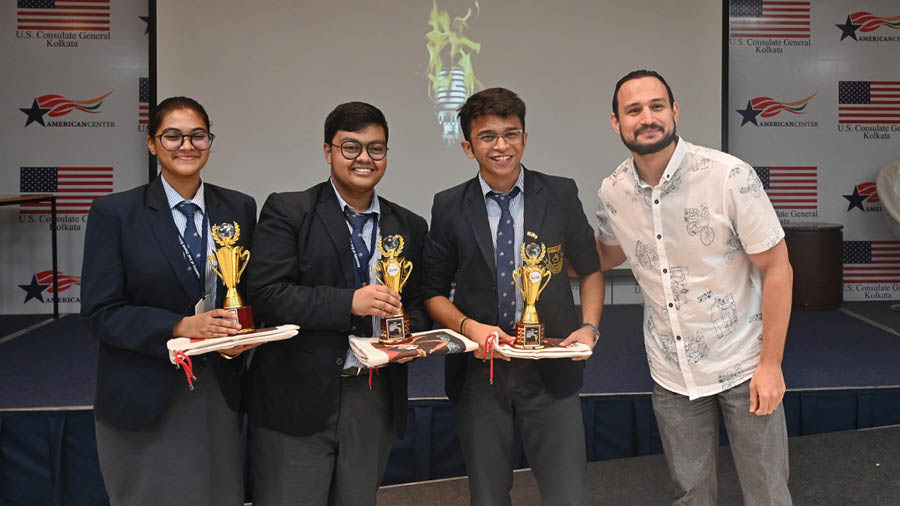
(L-R) Areeba Begum, Soumadri Bhattacharya and Avinash Janak Doshi from The Assembly of God Church School, Park Street, were the runners-up, with Bhattacharya being adjudged the Best Speaker. He argued for the motion, drawing attention to the current global situation, the soft power of diplomacy, and the economic interdependence between the two countries. ‘I am proud of my mentors and mom, because of whom I stand here today. I learnt a lot and made a lot of friends,’ he said
In the end, Priyangshu Chaterjee, Mitadru Dasgupta and Mahasri Bhattacharjee from Delhi Public School, Ruby Park, were recognised as the Best Team. Their points for the motion focused on how the US has been a key mediator in India-Pakistan conflicts, de-escalating possibilities of a nuclear war. They also emphasised on how US and India can blend their repository of natural resources and technology to come up with smart energy solutions for the climate crisis. While speaking against, their team emphasised on the contentious history between India and the US, where the latter has often taken the side of Pakistan. The team further elucidated how India’s richness in diversity and culture is often not matched by the US, and their neglect of the same has led to several missteps in West Asia.
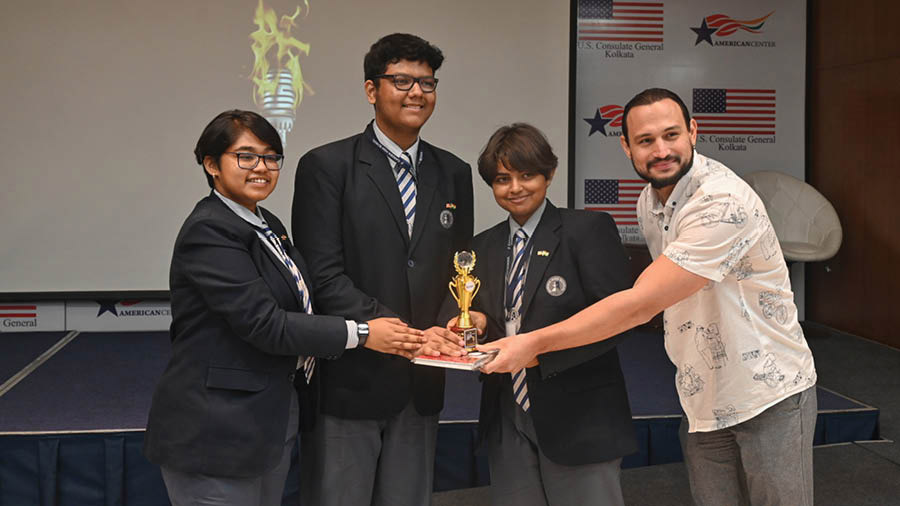
(L-R) Hansini Gayen, Ishaan Mukherjee and Nandini Chaudhuri from Garden High School bagged the third prize. 'The debate was an amazing experience, especially because of its scale and prestige,’ said Mukherjee
The judges shared some valuable debating advice for the speakers after the debate. “Being composed during a debate shows that you are in control of what you say, and using body language adds value. I also appreciated when speakers gave verifiable facts,” said Juan.
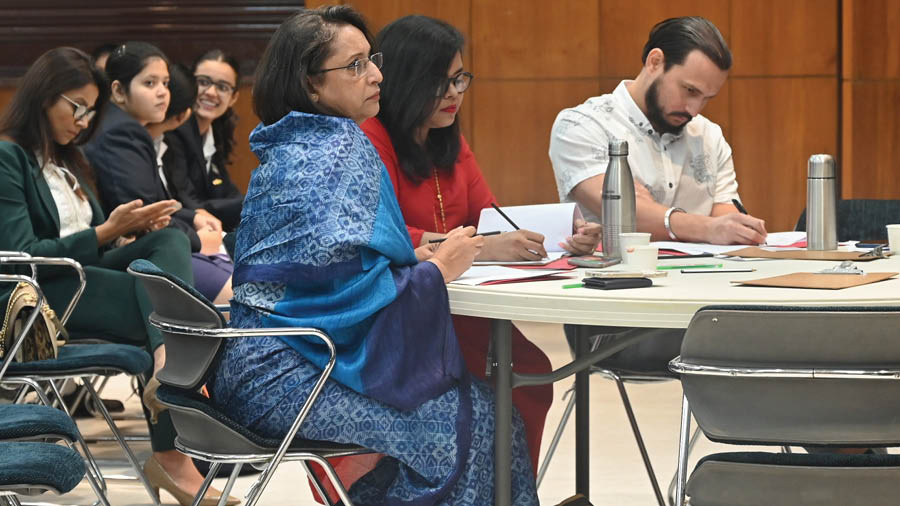
The judges’ panel comprised (from left) Debdatta Nandwani, adviser of Indian Export Organisations and founder, East India Trade Advisors; Dr Somrita Urni Ganguly, a poet, literary translator, and head of the department of English at Maharaja Manindra Chandra College, University of Calcutta; and Juan Clar, deputy director of American Center Kolkata
Somrita drew attention to the importance of learning from every debate irrespective of the result, “Debates like this are not about your personal ideology, but the stance you represent. It isn’t just about what you say, but how you say it. Moreover, the fact that you can stand in the American Center and talk about their foreign policy shows how they encourage critique, making the relationship between the two countries even more important.”
Debdatta agreed with her peers, encouraging speakers to find balance in their statements. “You have limited time, so rehearse your points so that they remain in focus. Every debate teaches new strategy, style and substance.”
